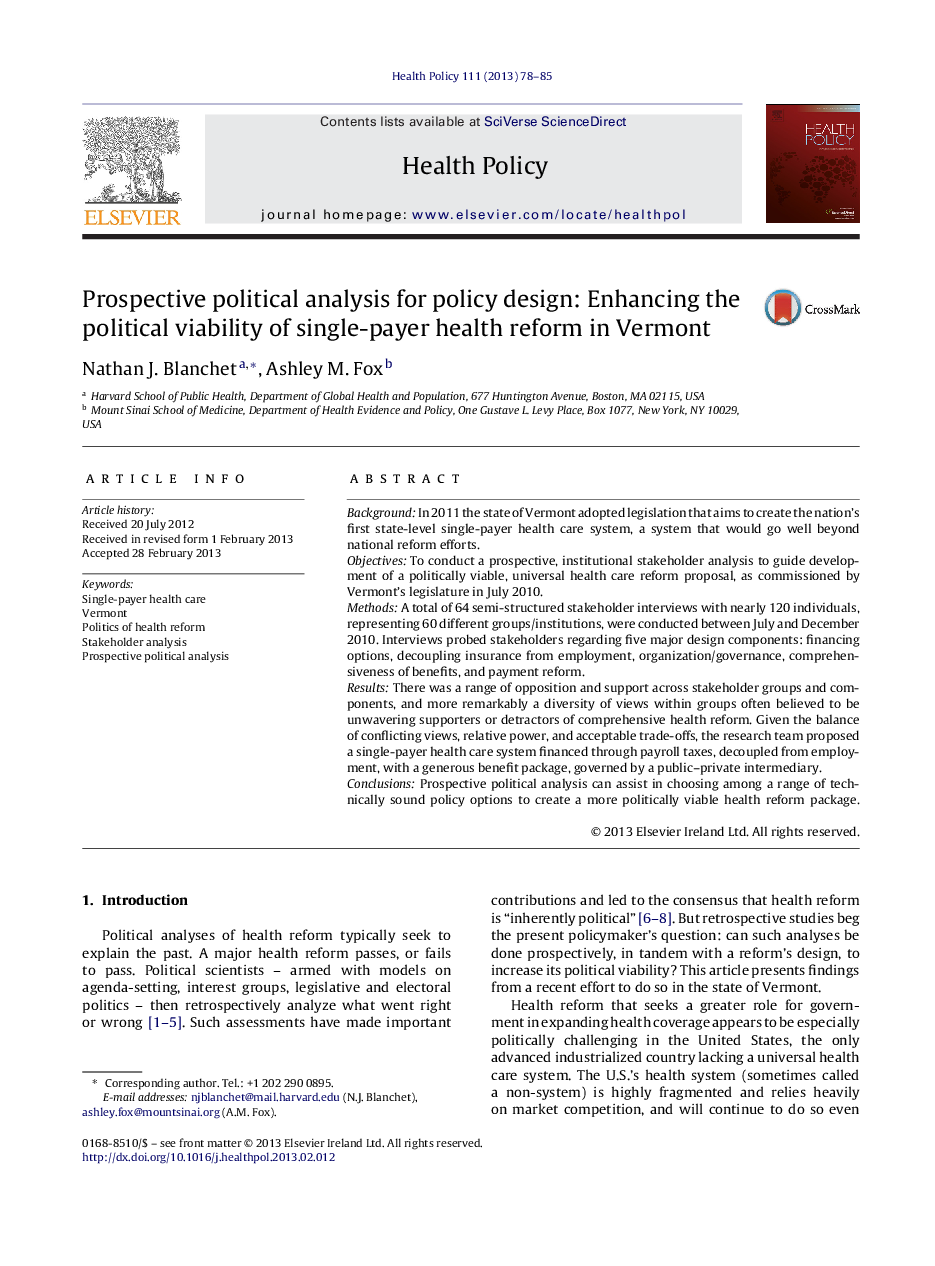| Article ID | Journal | Published Year | Pages | File Type |
|---|---|---|---|---|
| 4197831 | Health Policy | 2013 | 8 Pages |
BackgroundIn 2011 the state of Vermont adopted legislation that aims to create the nation's first state-level single-payer health care system, a system that would go well beyond national reform efforts.ObjectivesTo conduct a prospective, institutional stakeholder analysis to guide development of a politically viable, universal health care reform proposal, as commissioned by Vermont's legislature in July 2010.MethodsA total of 64 semi-structured stakeholder interviews with nearly 120 individuals, representing 60 different groups/institutions, were conducted between July and December 2010. Interviews probed stakeholders regarding five major design components: financing options, decoupling insurance from employment, organization/governance, comprehensiveness of benefits, and payment reform.ResultsThere was a range of opposition and support across stakeholder groups and components, and more remarkably a diversity of views within groups often believed to be unwavering supporters or detractors of comprehensive health reform. Given the balance of conflicting views, relative power, and acceptable trade-offs, the research team proposed a single-payer health care system financed through payroll taxes, decoupled from employment, with a generous benefit package, governed by a public–private intermediary.ConclusionsProspective political analysis can assist in choosing among a range of technically sound policy options to create a more politically viable health reform package.
